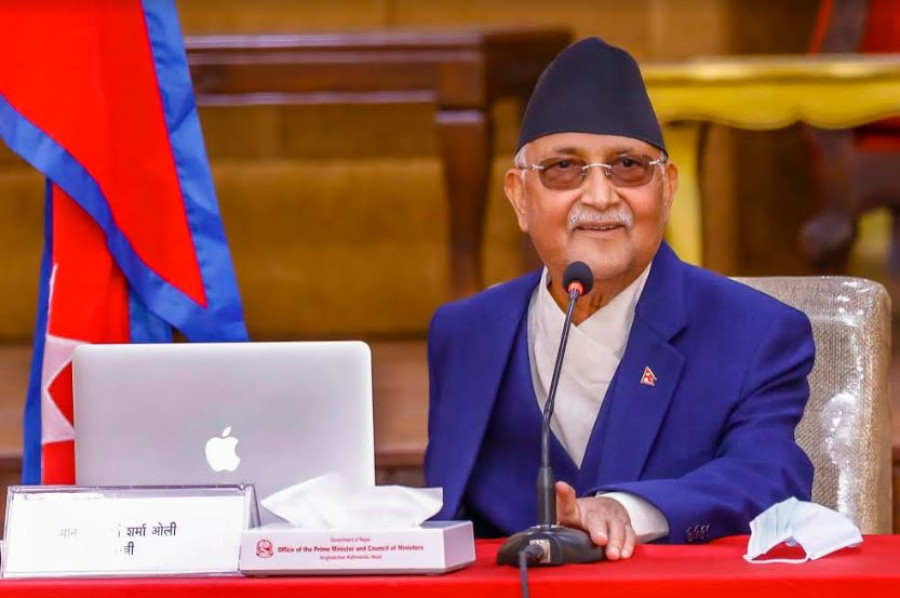Editorial
Corrupting democracy
The Oli administration and the ruling party have together bulldozed the very pillars of a legitimate state.
Prime Minister KP Oli’s government and the ruling Nepal Communist Party have been mired in one controversy after another in the last two years since they gained power. At different times, the government has been accused of attempting to push through controversial laws, of running interference in the workings of state agencies, looking the other way at police brutality, and influencing the Commission for the Investigation of Abuse of Authority to be selective in charging people for crimes related to graft. Many of its ministers have themselves been accused of corruption in recent times; some, shamefully, even related to the procurement of items needed to effectively fight the spread of SARS-CoV-2.
At the same time, the ruling party has been willingly standing by, its other leaders too busy plotting to undermine Oli to actually see the damage his governance has done to the credibility of the system itself. And, instead of urging the government to function better, the NCP’s leaders have instead haggled and wheedled to get a share of the plunder for their respective factions. This included the nomination of a man who squarely lost the federal elections into the National Assembly instead of a technocrat, all to balance internal politics.
However, the revelations and actions surrounding the recent ordinances—which have since been repealed—show how low the Oli government has really sunk. They have brought the very institutions of democracy, justice and the rule of law to an all-time low. For, while the ordinances—one related to the decision-making process of the Constitutional Council and the other the stability of political parties between elections—themselves exposed the depth of the prime minister’s desire to cling onto power, the deeds surrounding them are untenable in a truly democratic society.
The controversy begins a day before Loktantra Diwas, no less, when the prime minister of the country allegedly sent NCP leaders Mahesh Basnet and Kisan Shrestha and former inspector general Sarbendra Khanal to bring a parliamentarian, Surendra Yadav, to Kathmandu to coerce him into leaving his party. Yadav himself has alleged that this was done so against his will. Oli’s plans of splitting the Samajbadi Party by use of sweet words, pressure and the hurriedly passed ordinances were foiled when the third and fourth largest parties in federal parliament merged. At the same time, the ruling party itself rebuked Oli for his actions, and he was forced to back down. The ordinances were subsequently repealed at the behest of the government, to the prime minister’s and the president’s shame.
In a true democracy with strong institutions in place, these actions would have sufficed to bring down the government, with many resignations expected. Yet, in this case, the story becomes crazier. Instead of licking its wounds and promising to do better (in the least), the government seems determined to sweep the whole episode under the rug without consequence. The government seems to have influenced Nepal Police to not only arrest dissenters on immoral technicalities—the arrest of former secretary Bhim Upadhyaya under the Electronic Transaction Act being a prime example—but also to refuse to register a case of kidnapping against the accused.
The actions of the Nepal Police and the Oli administration are reprehensible. They go beyond disrepute. But time and again, this government has shown that it will answer to no one unless facing severe rebuke from the people. Yet, the ruling Nepal Communist Party has no better alternative. Even now, as the party Secretariat and Standing Committee stand to punish KP Oli for his follies, the main goal of the exercise seems to be the redivision of power, instead of bringing back legitimacy and credibility. There seems to be no hope left for honest governance coming from the ruling party. It is up to civil society to continue to keep a wary eye on as long as the current coterie continues to rule.




 14.24°C Kathmandu
14.24°C Kathmandu














